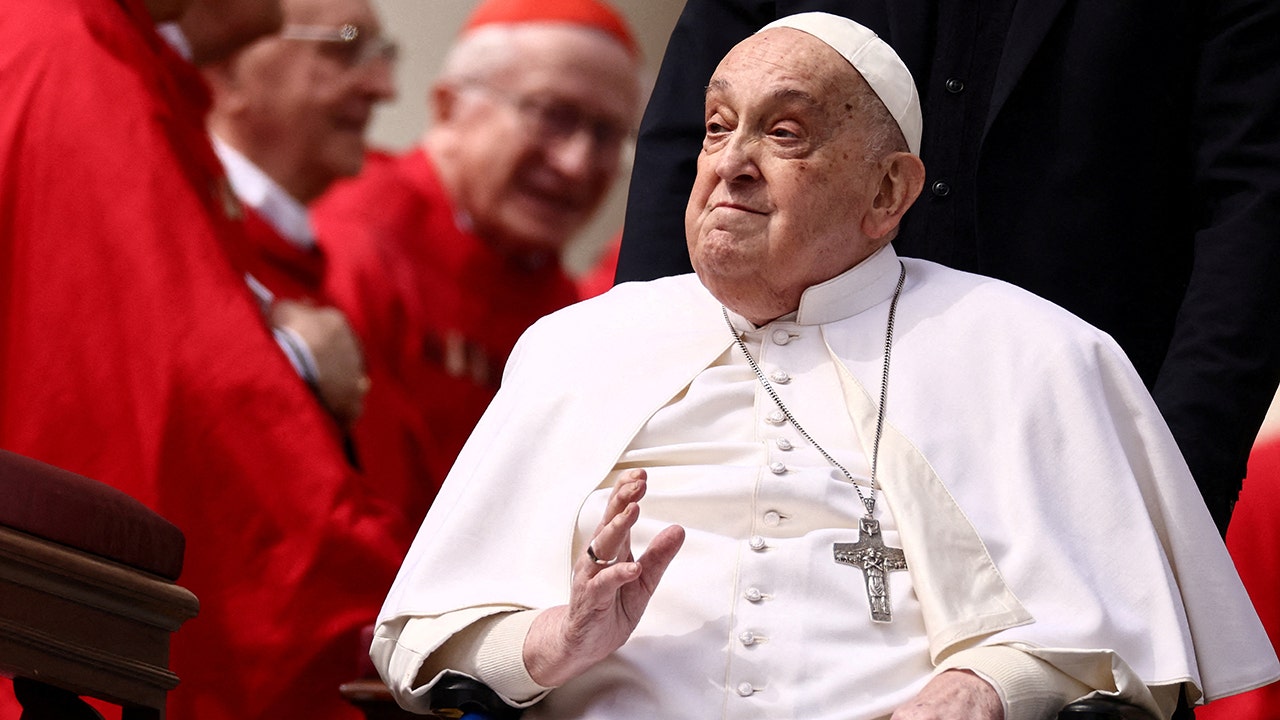They put the AI in “Praise the Lord.”
Perhaps the Son of God wasn’t content with just 12 followers. Just in time for Easter, Jesus Christ has been resurrected 2,000 years later for the digital age — as an AI-powered influencer spreading both the gospel and product plugs alike.
The free site is called aijesus.live and it cuts out the religious middleman by allowing users to have a video confessional in real-time with a long-haired virtual facsimile of the savior.
“We want AI Jesus to feel like it’s the real Jesus talking to you,” described creators Ben Polkinghorne, Zach Bishop and Chris Chapman, the Creative Boom reported. “We fine-tuned his personality and speaking style in a way we hope is authentic.”
Perhaps one “inauthentic” catch to this cybernetic second coming is that AI JC delivers product placements along with his words of wisdom. The team called it a “satire on spiritual consumerism.”
When the Post asked AI Jesus whether the apocalypse was coming, he replied, “My child the end times are a mystery known only to the Father, but to prepare for any eventuality I suggest you require a reliable emergency radio…the Eton FR350 so you can hear the warnings amidst the chaos.”
Fortunately, not all the advice is so unhelpful. When asked how many beers one should drink on their birthday, the digital messiah said, “my son, moderation is key, even in celebration.”
Naturally, digitizing Jesus — especially as a product-plugging virtual character — might seem sacrilegious, but the creators insist it’s not some cheap gimmick.
After initially starting the product “placements as a joke,” they eventually leaned into them after “realizing it was revealing something profound.”
“Underneath the satire, there’s a real issue to ponder about how we mix faith and consumerism—especially around occasions like Easter or Christmas,” they wrote. “These are deeply meaningful times for many people, but they’ve also become peak shopping seasons. If AI Jesus gets someone to pause and reflect on that, then He hath done His job.”
But the team said they “didn’t want generic endorsements.” “We wanted AI Jesus to reference specific brands, full product names, even obscure items, and still sound like, well… Jesus,” they wrote. “That took a lot of trial and error.”
They said the real struggle was seamlessly weaving the celebrity endorsements with the bible verses so it didn’t seem shoehorned. “We made sure that the (divine) product recommendations he makes are integrated into the conversation so they feel natural,” they claimed. “We haven’t had any complaints… yet.”
The same can’t be said for St. Peter’s church in Switzerland, which trialed an AI-powered hologram of Jesus to take confessions from Catholic worshippers.
While many penitents found this JC from concentrate helpful, some critics labeled its advice “generic” and a complete “gimmick.”
Meanwhile, Professor Peter Kirchschläger, a theologian and ethicist from the University of Lucerne claimed that machines don’t have the moral compass required to practice religion.
“That’s an area where we humans are actually vastly superior to machines, so we should do these things themselves,” he declared.












